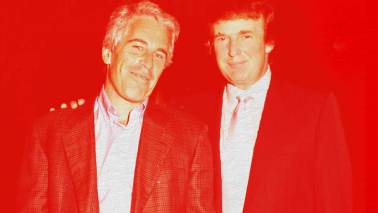Apart from a strange and silly piece on Today accusing Sir Winston Churchill of being a racist over his attitude to India — he was, after all, a product of the age of Empire — it was a good week on Radio Four for our greatest prime minister. To mark the 40th anniversary of his death, the network broadcast several programmes commemorating his life, among them a repeat of Playing for Time — Three days in May 1940 (Saturday), a drama about wartime Cabinet disagreements, previously reviewed here, and later on in the evening The Archive Hour: Farewell to Winston, which looked back to his state funeral. Other programmes included Book of the Week: The Fringes of Power, the evocative Downing Street diaries of John Colville, Churchill’s private secretary from 1939, who observed closely the range of his moods throughout the war: the black depression, the rages and the wit and humour.
Inseparable, though, from the war leader was, of course, his powerful oratory and in Churchill’s Roar on Radio Four last week (Monday), Melvyn Bragg and his Routes of English producer Simon Elmes analysed Churchill’s voice, delivery and the poetic dimension of his speeches. Although he was an aristocrat, Churchill didn’t necessarily sound like one; his accent wasn’t extreme, and, as phonetician Professor John Wells of University College London pointed out, he spoke with the received pronunciation typical of the time. Despite his poor academic record at Harrow, it seems that his love of the English language began there. Paul Addison, author of a new book, Churchill: The Unexpected Hero, said that he’d won a prize at school for writing a poem about an influenza epidemic that spread from Asia to Europe, ravaging France and Germany. Churchill’s patriotism was evident then as he wrote that the flu was powerless to cross the Channel.
Writer and broadcaster Peggy Reynolds had noticed that in the transcripts of his speeches the word ‘island’ was always in capital letters. ‘So it’s this concept of something small, very contained, separate from the rest of the world that he’s trying to convey to his audience …this sense that they are separate, they are different, this is an island race.’ He also used imagery of heroes, knights of old, crusaders, which he associated with the idea of young men going off to fight a war. She also thought that he conjured up something grand and romantic about Britishness. Bragg reminded us that after Churchill struggled to get into Sandhurst, being accepted at the third attempt, he decided to educate himself. As a young cavalry officer in India, he read Gibbon, Macaulay, Darwin and Adam Smith’s Wealth of Nations.
Addison pointed to an essay called ‘The Scaffolding of Rhetoric’ that Churchill wrote when he was in India. It was based on his reading of the great English speeches by Cromwell, Chatham, Gladstone and Disraeli. His analysis of their techniques found that many used very short syllables combined with homely language. Although they contained plenty of argument, they tended to end with a statement that was very extreme and which gave the audience ‘emotional catharsis’. In his ‘We will fight them on the beaches’ speech, he clearly used these techniques. Jean Seaton, professor of mediaeval history at Westminster University, thought that he copied typical rhetorical flourishes such as repetition, emphasis and lists. He had a ‘lovely, deep, fruity voice, even a sexy voice’. Another phonetician noticed that by speaking more slowly Churchill achieved greater dramatic effect.
A rare archive recording was found from 1909, when Churchill was the 34-year-old president of the Board of Trade and from that one can clearly hear how he was, in Bragg’s words, ‘already deploying the same voice tricks’. Seaton suggested that the use of the phrase ‘the happy few’ from the address to the troops before Agincourt in Henry V was an influence on Churchill’s phrase ‘the few’ in his 1940 Battle of Britain speech. He was, said Addison, a pioneer of the soundbite. This was an illuminating programme showing clearly how Churchill prepared himself for a life in politics and how he used the skills of oratory to inspire and sway. It reminded me of how unique he was, for all his faults. I cannot think of a politician since who could have spoken so eloquently and with such force at time of war. Margaret Thatcher was firm and decisive over the Falklands — she had some of Churchill’s necessary aggression in her voice — but lacked the soaring use of language. Of course, one doesn’t know how a politician will rise to the occasion when Britain is actually threatened, as it was in 1939.




Comments